Doctor @BrighamWomens | Associate Prof of Health Policy & Management @HarvardHPM @HarvardHSPH | @harvardmed | Faculty Director of BWH MLP Program
Strong performance on prevention *within* the health care system isn’t enough to protect us if prevention *outside* it remains weak.
Work in collaboration w/ Irene Papanicolas @brownpublichealth.bsky.social, Tania Sawaya, & Sara Bleich @harvardhpm.bsky.social @hsph.harvard.edu
At the same time, we eat more calories, have higher obesity prevalence, and more illicit drug/opioid use. This is why Americans are more likely to die prematurely.
1. When it comes to performance *within* primary healthcare system, the US actually *performs better* than most countries (e.g., higher screening, vaccinations, and chronic disease management rates).
2. But millions still lack coverage & reliable access to affordable primary care
Reposted by The Lancet Public Health

In our new @thelancetph.bsky.social, we take a closer look at this issue.
#IrenePapanicolas @Brown
www.sciencedirect.com/science/arti...
Reposted by Michael Barnett, John Mullahy

An extraordinary teacher, researcher, leader, and mentor to so many of us @hsph.harvard.edu who now shares her deeply personal story fighting against Parkinson’s disease.
Her story in @nytimes.com www.nytimes.com/interactive/...
1. In just 1yr, we saw a ~55% enrollment growth among full-benefit duals and >68% among partial duals into C-SNPs.
2. About 1 in 4 duals in 2025 C-SNPs came from plans w/ some form of integration.
3. About 15% of C-SNPs could be terminated if CMS applied “look-alike” rule

Rapid growth of “Chronic Condition Special Needs Plans (C-SNPs)” enrolling dual-eligibles.
We argue their growth is threatening national integrated care efforts for duals.
www.healthaffairs.org/do/10.1377/f...
Reposted by Michael Barnett
Some welcome relief hopefully to so many.
Story below:
www.thecrimson.com/article/2025...
Reposted by José F. Figueroa
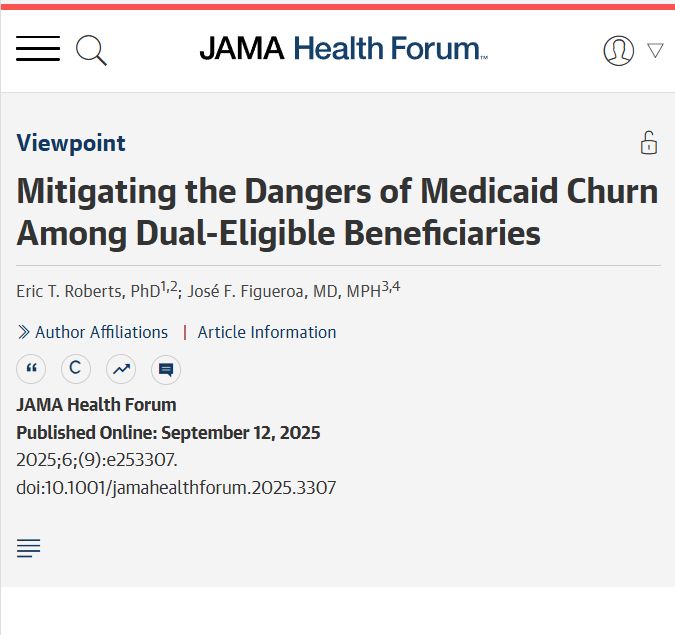
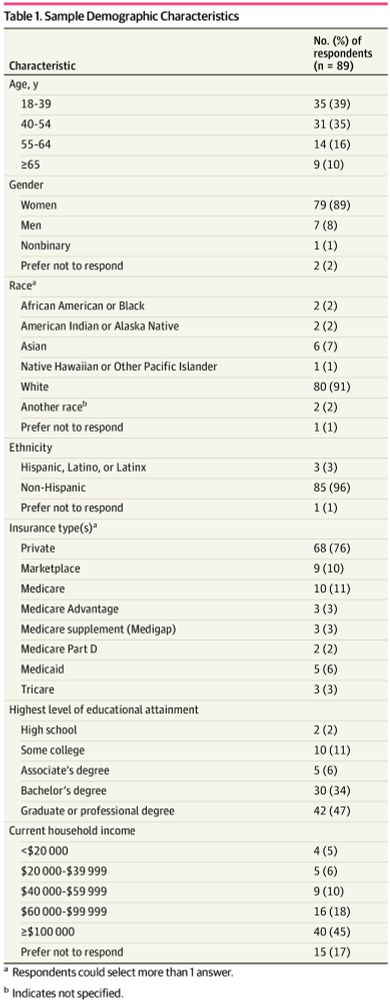
“I always told myself the stress of dealing with insurance was worse than the cancer.”
Insights from patients w/ cancer dealing with prior authorizations in @jamanetworkopen.com study
jamanetwork.com/journals/jam...
Reposted by Ellen Meara
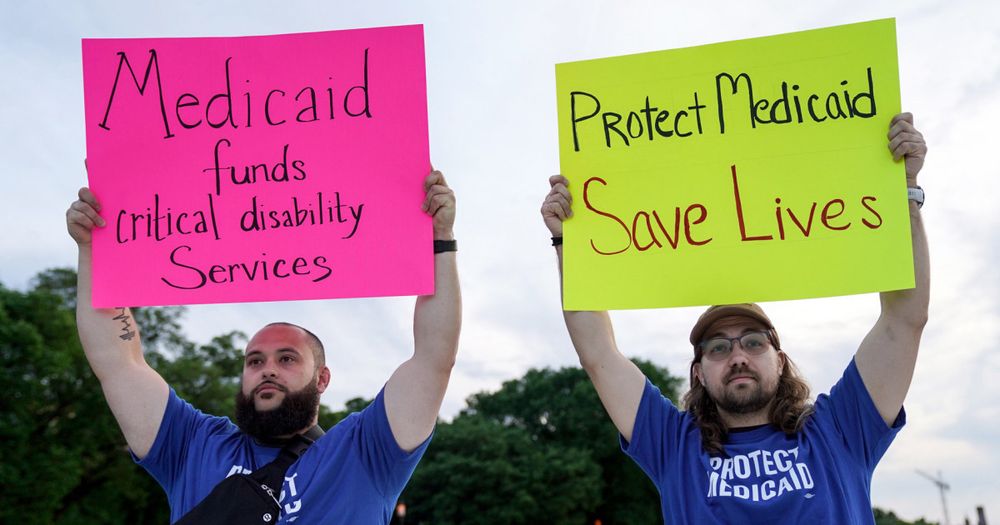
It’s a predictable result when you cut off insurance to people who are old, poor and sick.
Eric Roberts @pennldi.bsky.social and I discuss @msnbc.com @harvardhpm.bsky.social
www.msnbc.com/opinion/msnb...
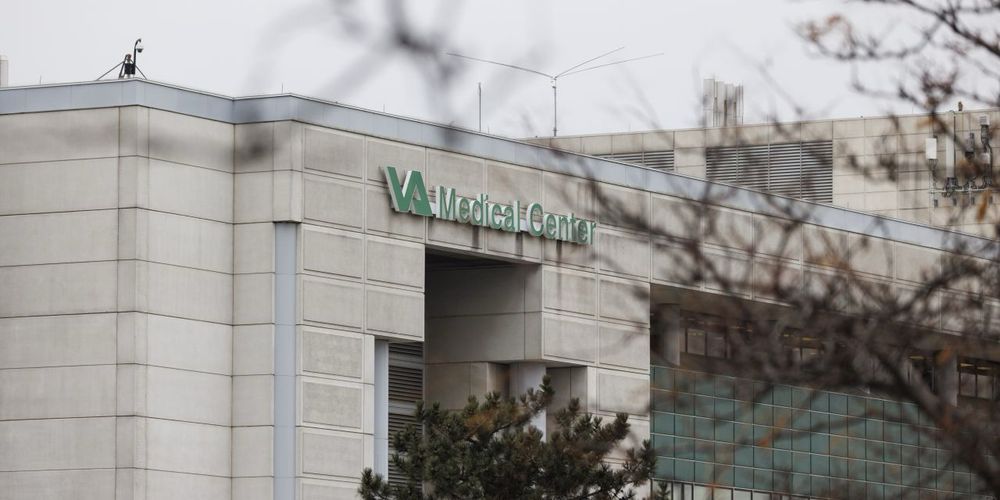
A bipartisan group of House and Senate lawmakers considering finally fixing the MA to VA cost-shifting loophole that currently leads to billions in MA profits to provide zero care while VA foots the bill.
Story by @wsj.com
www.wsj.com/politics/pol...
#ARM25 @academyhealth.bsky.social
https://ja.ma/4jKGy6e

Veterans in high-veteran MA plans are much more likely to have surgical care paid by VA than plan itself—even when surgery occurs in non-VA hospitals…
Reposted by Stacie B. Dusetzina, José F. Figueroa

#ARM25 @academyhealth.bsky.social
https://ja.ma/4jKGy6e

Forum brings together a diverse set of people working on issues related to improving health.
Full list of @aspenideas.bsky.social Health Fellows:
www.aspenideas.org/articles/202...
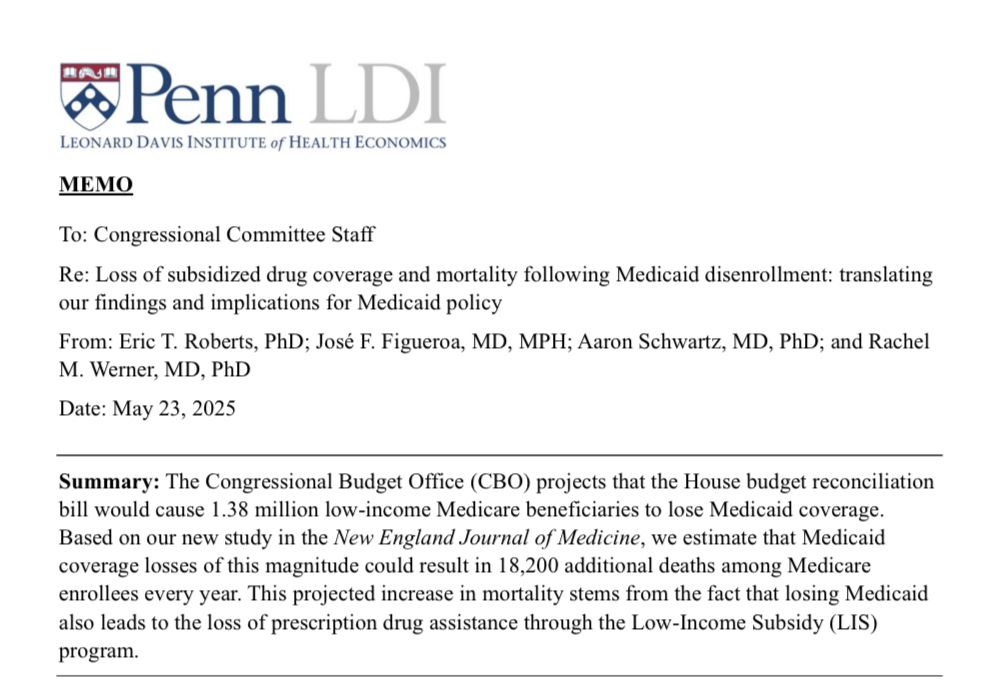
We estimate that this will lead to over 18,000 avoidable deaths per year stemming from loss of drug subsidies
Link to our memo led by @pennldi.bsky.social:
bit.ly/4mwfcDA
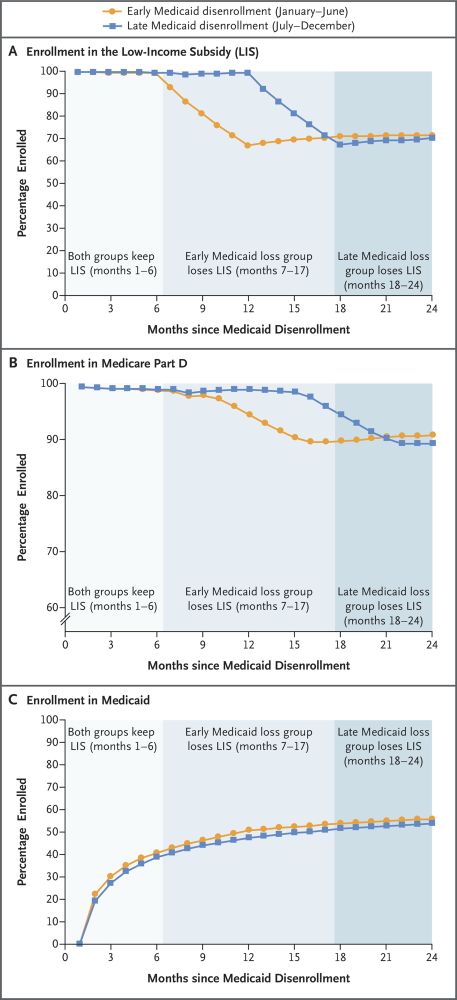
@pennldi.bsky.social @harvardhpm.bsky.social
Link to study: www.nejm.org/doi/full/10....
Reposted by Rachel C. Nethery

This week, we are forced to reckon with what’s next, including shutting down research portfolios, considering staffing cuts, and scrambling to cover salaries.
HSPH: “ground zero” of NIH cuts
www.nytimes.com/2025/05/21/u...

Link to study 2, which is our @nejm.org study led by Eric Roberts: www.nejm.org/doi/full/10....
1) Value of having Medicaid (Wyse & Meyer, NBER)
2) Human costs of losing Medicaid & linked subsidized drug coverage in @nejm.org
Lives saved in study 1 and lives lost in study 2
www.npr.org/sections/sho...
Urgent need for VA and CMS to fix this inefficiency to tune of $BILLIONS per year.
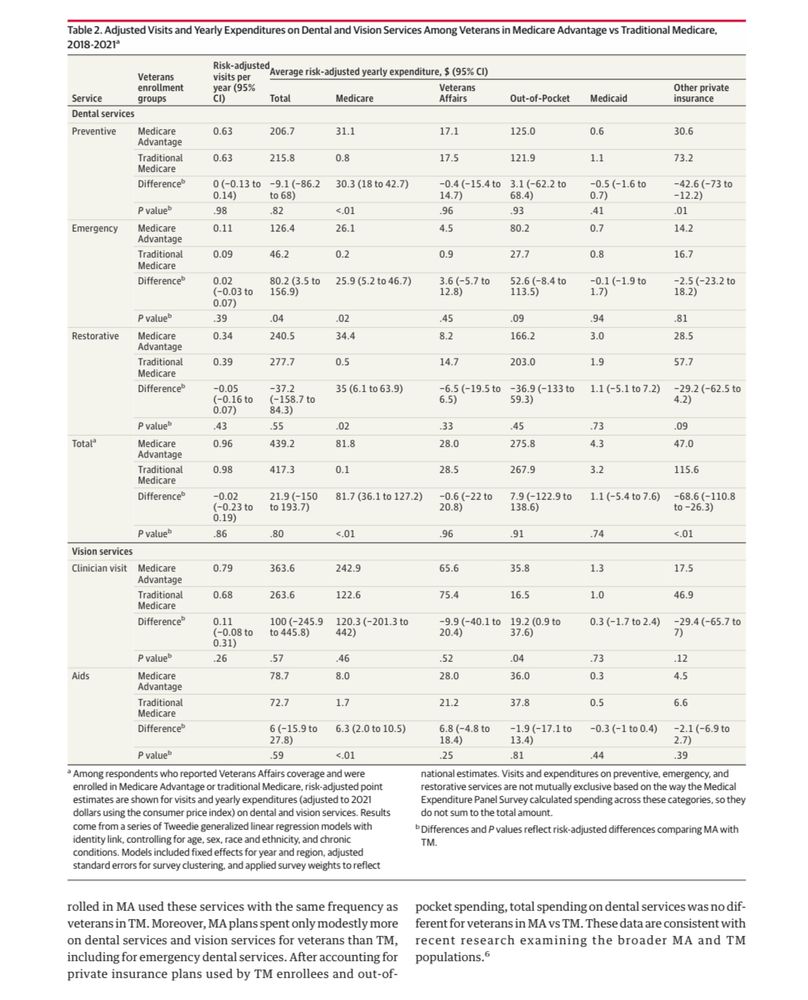
1. No significant differences in total utilization or spending of dental & vision services between vets in MA vs TM.
2. MA plans only spend ~$82 per veteran enrollee on dental care and ~$6 more on vision aids than what TM vets get.
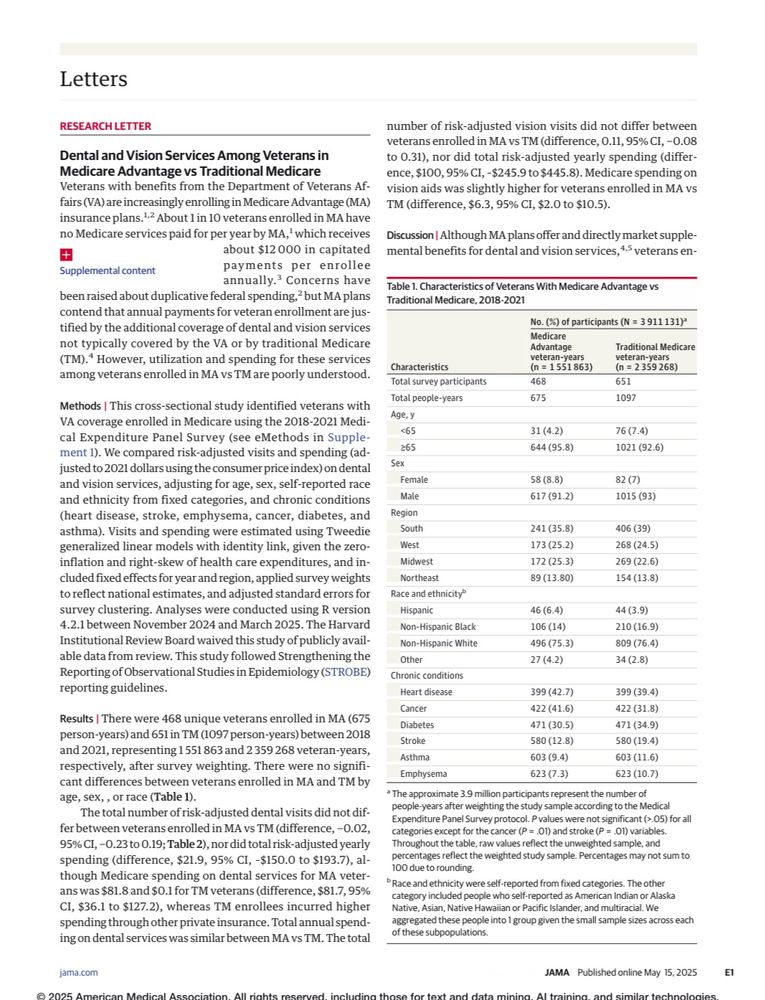
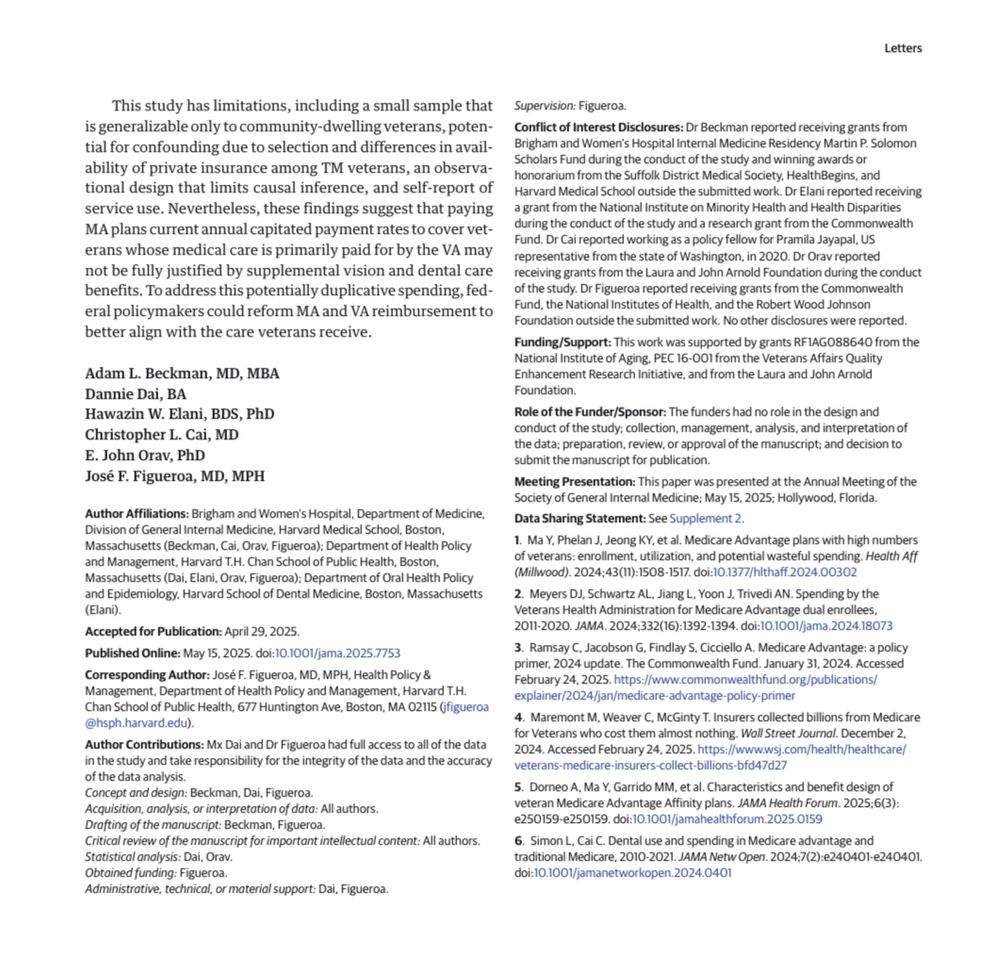
MA insurers argue that vets get extra benefits (vision + dental).
But in new @jama.com study, we find that this claim is NOT actually the truth.
@adambeckman.bsky.social @hsph.harvard.edu
jamanetwork.com/journals/jam...
Reposted by Michael Barnett, José F. Figueroa, Ellen Meara
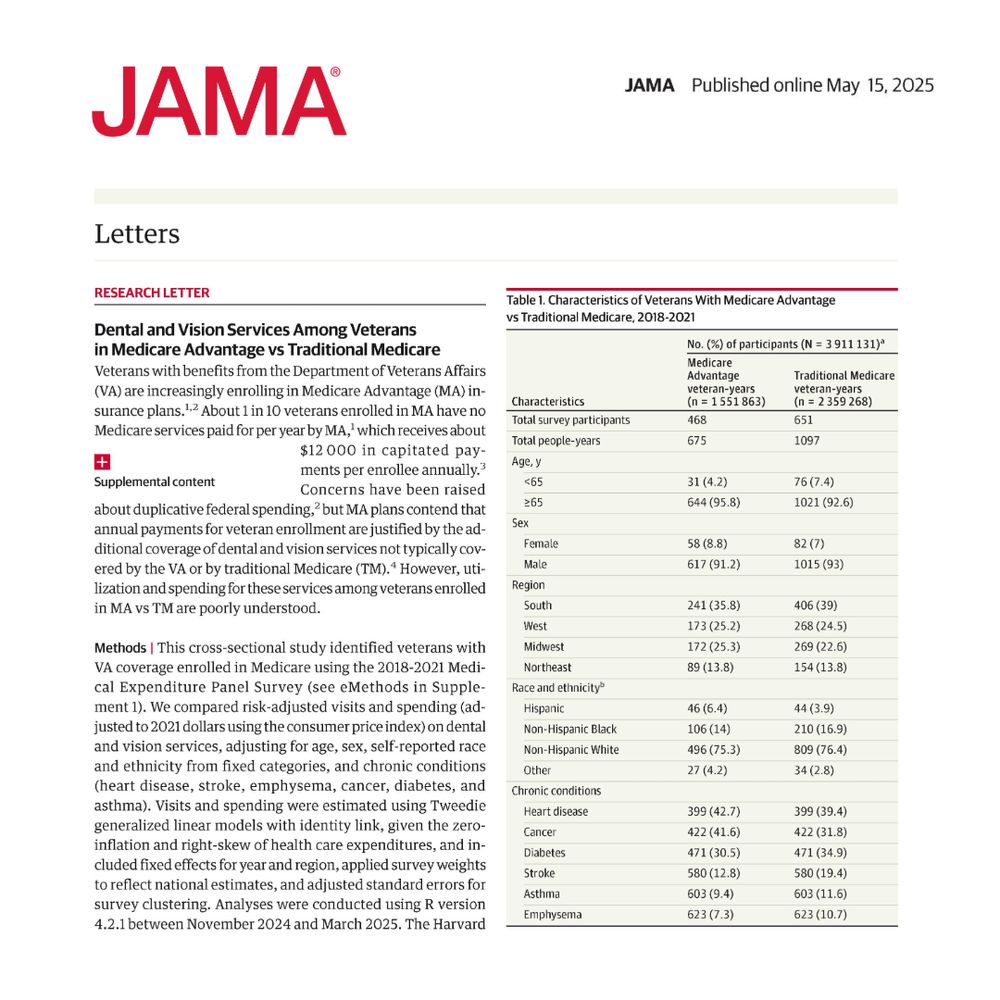
https://ja.ma/3ZficKj
Reposted by José F. Figueroa
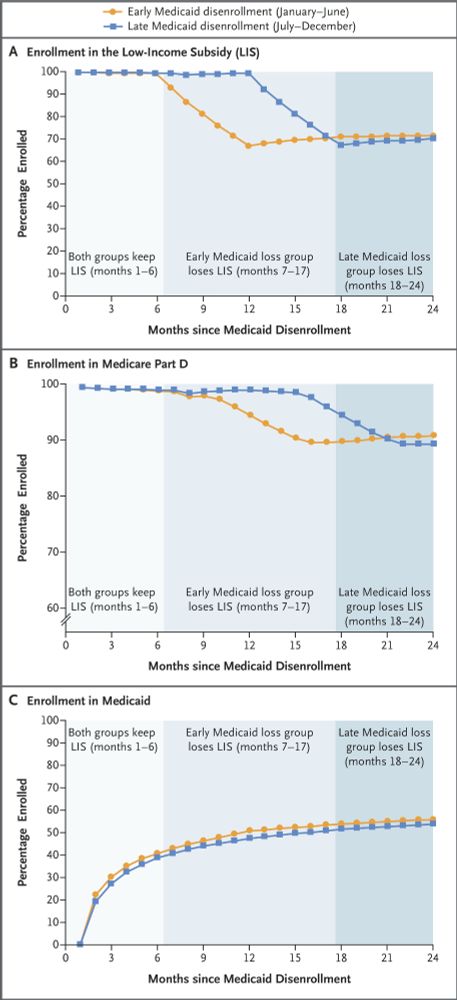
How important is help with drug costs? For dual Medicare-Medicaid beneficiaries, it saves lives.
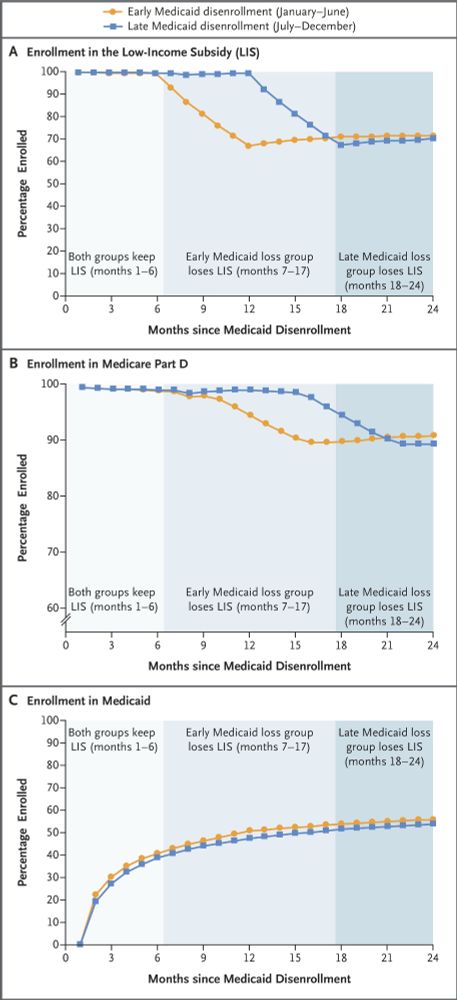
Medicare saves lives. But is it enough to save lives of the most vulnerable Americans? The study suggests no; Medicaid still matters. (1/11)
Reposted by José F. Figueroa

Reposted by Michael Barnett, José F. Figueroa
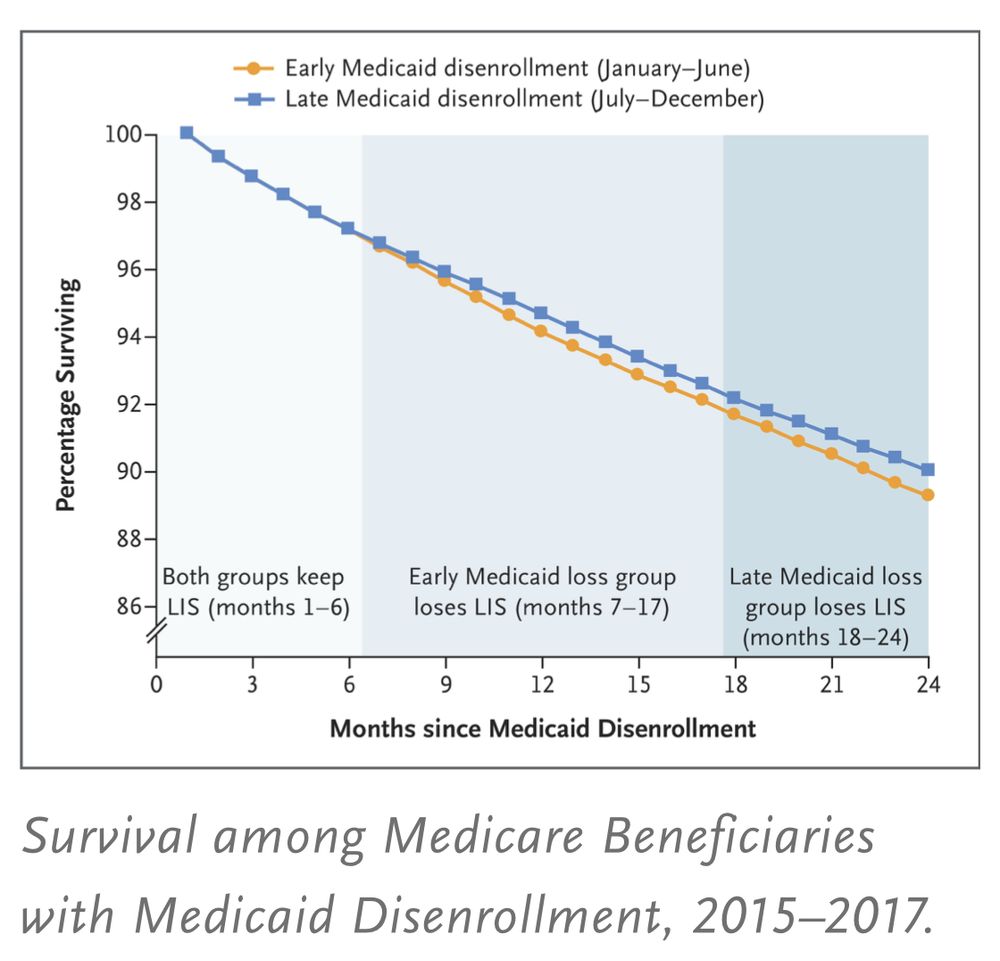
Here's the punchline: "Loss of drug subsidies after Medicaid disenrollment was associated with higher mortality among low-income Medicare beneficiaries."
www.nejm.org/doi/full/10....
Reposted by José F. Figueroa

(Standard disclaimer that AHRQ is an agency created and funded by Congress, not at the whims of the executive branch)

hsph.harvard.edu/news/hiv-car...

